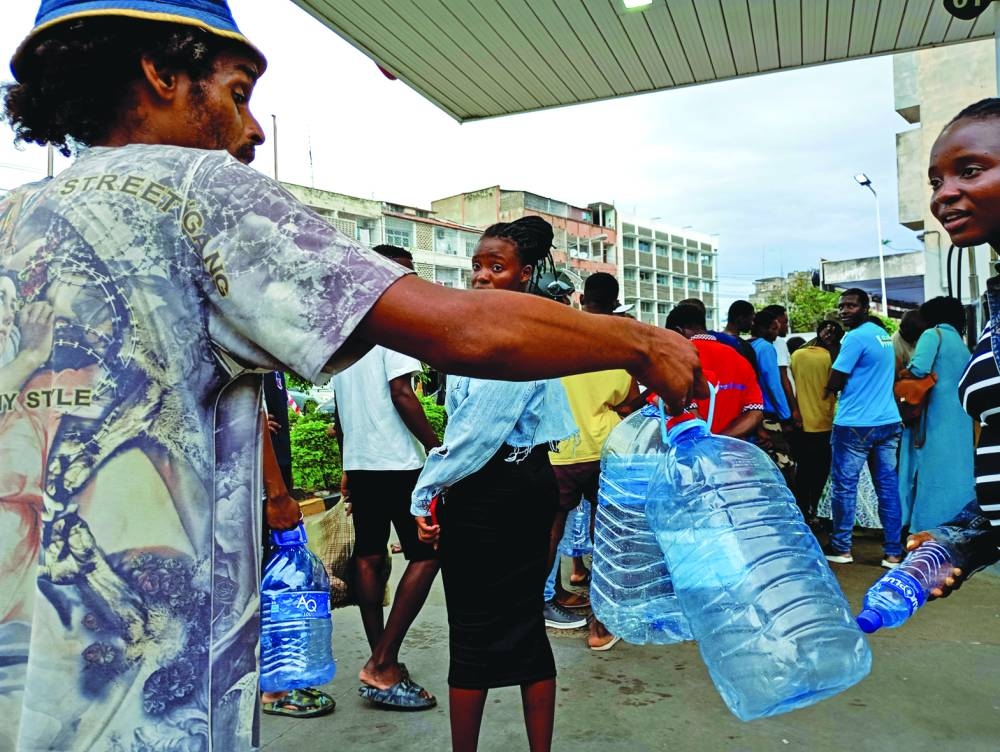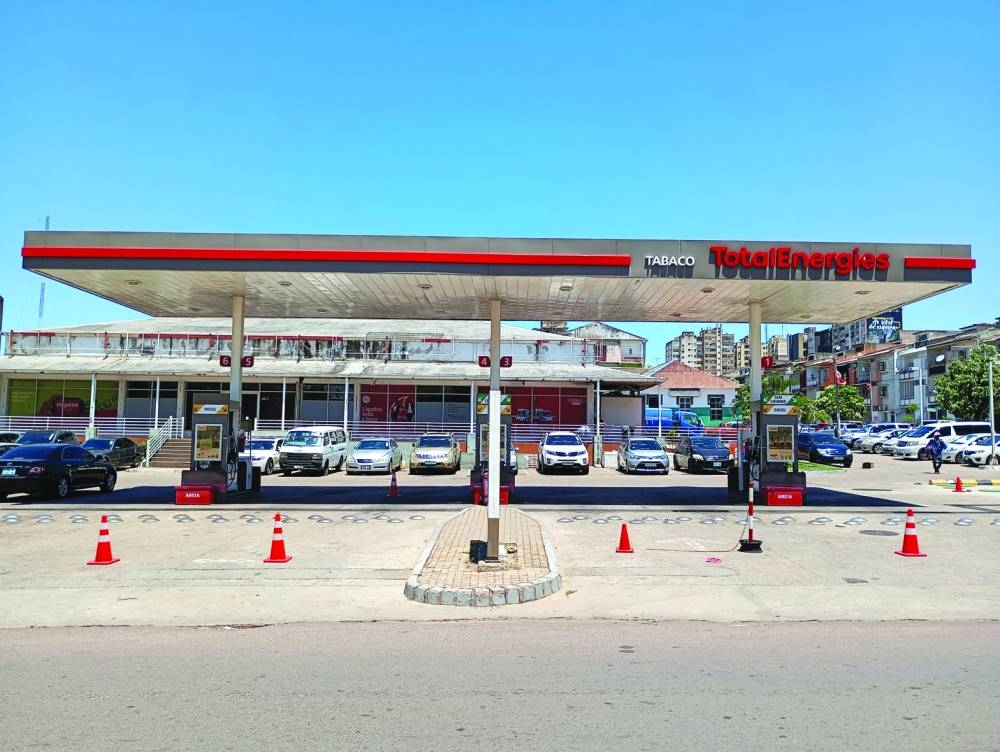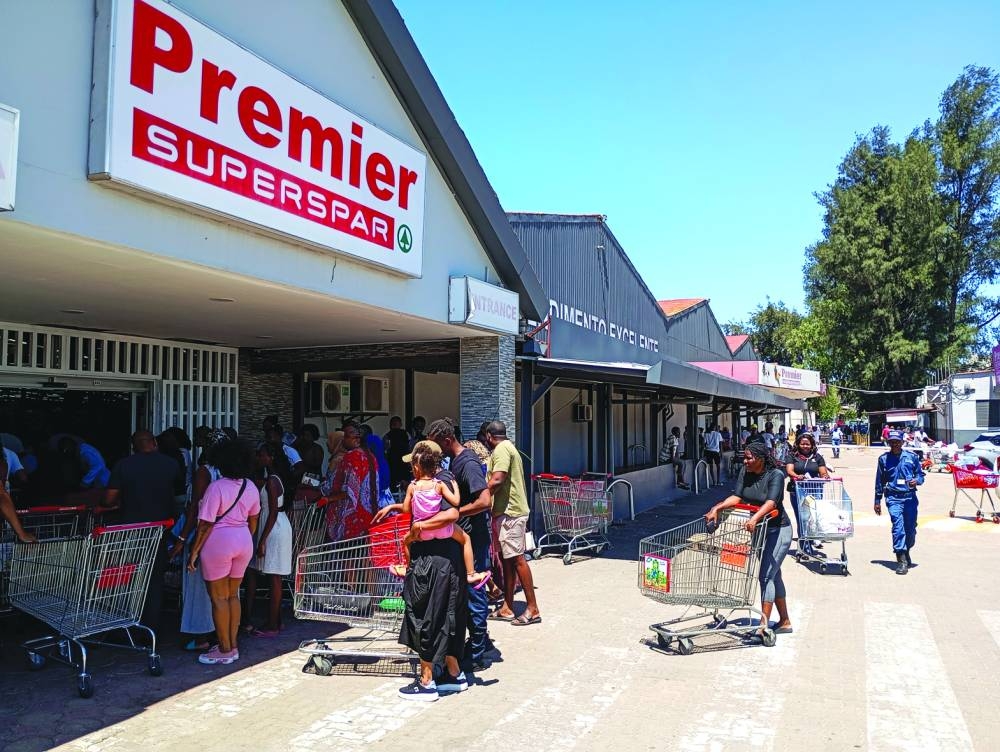Mozambique’s president-elect Daniel Chapo on Friday called for “non-violence” and “unity” after widespread rioting this week sparked by his ruling party’s contested election win. Chapo, who said he “regretted” the violence, promised that after his inauguration in mid-January, he would be “the president of all” in the southern African country, despite opposition claims of vote-rigging.
Mozambique’s top court on Monday confirmed that Frelimo, Chapo’s party that has been in power for 50 years, won the October 9 vote, triggering four days of unrest that saw streets blocked, shops and businesses torched, and looting.
Some 134 people were killed in the unrest, according to local NGO Plataforma Decide, taking the overall death toll since the elections to at least 261.
Chapo said in his first public statement since the court decision that the worst affected cities were the capital Maputo, neighbouring Matola, the central city of Beira and Nampula in the north.
“These acts only contribute to the decline of the country and the increase in the number of Mozambicans who are heading towards unemployment and poverty,” added the former provincial governor, who takes over an impoverished nation with glaring inequality in just a few weeks.
Chapo thanked citizens who helped remove makeshift barricades to try to get life back to normal and praised security forces for “mitigating the harmful effects of political polarisation”. Several police officers died during the clashes, he added.
He promised to turn around the country’s economy and to do “everything to renew” Mozambique. International observers also pointed to electoral irregularities in the disputed presidential poll, which the Constitutional Council said Chapo won with 65.17 percent of the vote. The country’s electoral commission had initially said Frelimo won nearly 71% of the vote.
Before this week, Mozambique had seen a wave of demonstrations, strikes and blockades in protest at the election. Mozambique’s capital, Maputo, is limping back to normal but residents are still fearful because of widespread looting and vandalism sparked by confirmation that the ruling party won contested elections.
Food, fuel and medicine are running low for the city’s inhabitants while the daring escape of more than 1,000 inmates from a maximum-security prison is fuelling wild rumours and prompted the creation of neighbourhood patrols. “My neighbour woke me up, telling me that men armed with machetes were walking around,” Maria Amelia, a 55-year-old cleaner who lives in Matola, near Maputo, told AFP. “When I went out, I saw my neighbours, armed with knives to defend themselves against these invaders. But I didn’t see anyone. I was terrified.”
Maputo bank worker Armand Tembe, 40, was also dragged out of bed before dawn. “I haven’t seen any criminals outside. But it’s starting to get scary. I don’t know where the country is going,” he said dejectedly.
“We stayed up until 4:30 in the morning and patrolled for something we only heard about and that no one saw,” said another woman who wanted to remain anonymous. “It was just hearsay, it makes it seem like a macabre plan.”
Borges Nhamirre, a Pretoria-based Mozambican researcher, said that so far “there have been no verified reports of attacks of this kind”. But the fact that the police chief, speaking to the press on Wednesday evening, “announced that detainees could ‘visit’ houses has fuelled concern”, he added.
“The prevailing sentiment in the conversations suggests that the government may have invented this crisis to control the ongoing social unrest,” he said. Venancio Mondlane, Mozambique’s main opposition leader, has denounced the October 9 election results as rigged. On Monday, the country’s highest court confirmed victory for the ruling Frelimo party, which has been in power for half a century.
That set off riots that left more than 125 dead over several days, according to the local NGO Plataforma Decide.
“We know who the real bandits are, it’s Frelimo,” Mondlane said on social networks on Friday. On the streets of Maputo, makeshift barricades were slowly being dismantled, while the army was clearing some roads, according to AFP reporters on the ground. Residents were cautiously leaving their homes to look for basic necessities.
“I’m looking for bread,” explained Isabel Rocha, 29, in the Laulane district of the city, after a sleepless night because of security fears. “The bakeries have been closed for four days. In fact, we lack everything. Even the small grocery stores are closed.” Lina Chauque, 47, sat despondently on the pavement with a large bundle containing lettuces and cabbages next to her.
She had been waiting for two hours with several other women for a bus to arrive to sell her products at market. “We tried to ask for help from some trucks that passed but the drivers did not want to take us,” she said.
A short distance away, cars queued patiently outside a petrol station where only one pump still had fuel.
“I am looking for medicine for me and my mother,” explained Tomas Panguene, 65, who suffers from knee pain.
“Yesterday I went out to find a pharmacy but the streets were still barricaded. I found what I needed this morning.”

Motorists carry plastic containers as they queue at a petrol station.

Traffic cones are placed at a petrol station amid a severe fuel shortage caused by disruptions linked to ongoing demonstrations, following the announcement of disputed election results in the capital Maputo.

Locals queue at a grocery store as disruptions linked to ongoing demonstrations continue, following the announcement of disputed election results in the capital Maputo.
